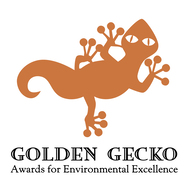Five projects demonstrating environmental excellence are vying for the prestigious Golden Gecko award which will be presented in October.
| Date: | Friday, 27 July 2018 |
|---|
Five projects which demonstrate a commitment to protecting and improving environmental outcomes for Western Australia’s resources sector are vying for the prestigious Golden Gecko Awards for Environmental Excellence.
Introduced pest and disease management and a research program into the ecology of the Ghost Bat in the Pilbara make up the five nominated projects which span the State.
Department of Mines, Industry Regulation and Safety (DMIRS) Acting Executive Director Resource and Environmental Compliance, Karen Caple said these projects have demonstrated unique solutions to protecting the environment.
“These projects have been carefully assessed against four criteria including commitment to environmental excellence, evidence of excellent environmental outcomes, community engagement and innovation,” Ms Caple said.
“It is great to see a continued commitment to improving environmental outcomes beyond that of just regulatory compliance, using technology and collaborative research partnerships to push the status quo.
“I would like to take this opportunity to congratulate the five nominees and thank them for sharing their expertise and innovative thinking with the industry.”
The Golden Gecko Award assessments were undertaken by a panel comprising of key government agencies including representatives from; Biodiversity Conservation and Attractions; Water and Environmental Regulation; Jobs, Tourism, Science and Innovation; and Primary Industries and Regional Development and DMIRS. The panel’s combined expertise is then used by the Golden Gecko Selection Committee to decide the winner(s).
Part of the department’s Resources Sector Awards for Excellence, the Golden Gecko award will be presented at the annual awards ceremony on Thursday 25 October 2018 along with the Community Partnership Resources Sector Award and the Safety and Health Resources Sector Awards.
Information on the Golden Gecko Awards is available on the DMIRS website at www.dmirs.wa.gov.au/excellenceawards.
The five projects are:
Rapid Impact Detection – Roy Hill Holdings and Astron Environmental Services
Rapid Impact Detection is an innovative method of identifying environmental phenomena as it occurs, enabling immediate response activities.
The State-Wide Array Surveillance Program – Multiple Port Authorities and Department of Primary Industries and Regional Development
The State-Wide Array Surveillance Program (SWASP) is a world-first in the use of molecular techniques by a collaborative marine biosecurity surveillance network to more rapidly respond to a potential incursion of an introduced marine pest.
Alcoa and Murdoch University Partnership Eradicates Biological Bulldozer Phytophthora Dieback – Alcoa of Australia
Alcoa and Murdoch University’s project has delivered a world-first – a technique that can eradicate the Phytophthora dieback pathogen without toxic chemicals and on a large scale. This technique has immediate application by others in the resources and extractive industries worldwide.
Chasing Ghosts: Understanding Ghost Bat Ecology in the Pilbara – BHP Iron Ore Pty Ltd
Evidence of the presence of the Ghost Bat in BHP’s Mining Area C commenced a significant collaborative project across industry, government and academia that has resulted a regionally relevant understanding of the ecology of the ghost bat in the Pilbara and enabled effective management of the species.
Biosecurity Management in Quarrying: Best Practice Dieback Management – Hanson Construction Materials
Hanson has embarked on a state-wise redevelopment of its sand and aggregates quarry operations located in the South West of Western Australia in an effort to responsibly restrict the spread of Dieback across the state and reduce the risk to award winning restoration efforts onsite.

